Essex university scientist helps discover 100 ocean species
- Published
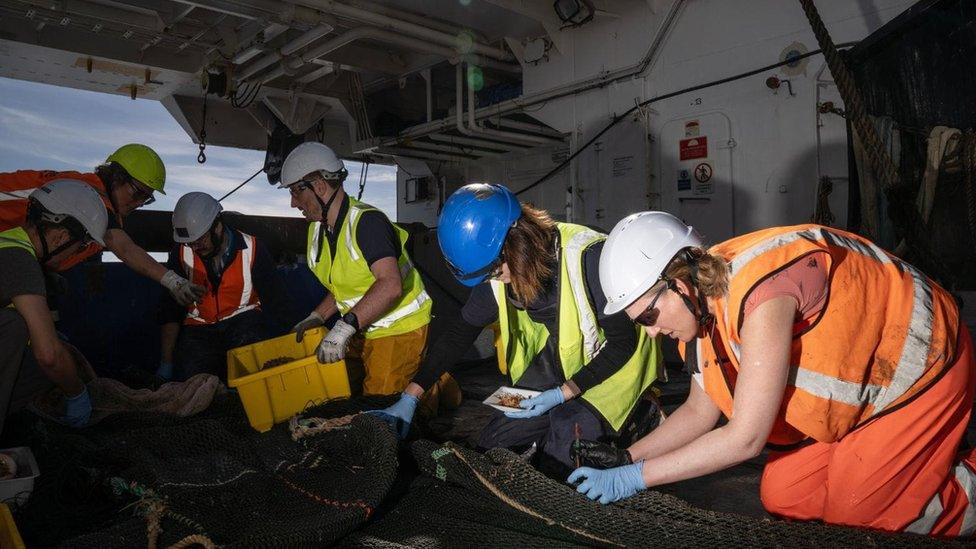
Almost 1,800 samples were taken along the 800km (497-mile) underwater site
A scientist helped to discover more than 100 new ocean species during an expedition to New Zealand.
Jessica Gordon, from the University of Essex, was among researchers who collected samples from as deep as 4,800m (15,748ft) underwater.
New species identified from the project have included three fish, squid, molluscs and a new type of coral.
Dr Gordon said she was "honoured" to be part of the study which analysed the Bounty Trough.
"We explored unmapped areas of the seafloor down to 5,000m and discovered over 100 new species of deep-sea organisms," she said.
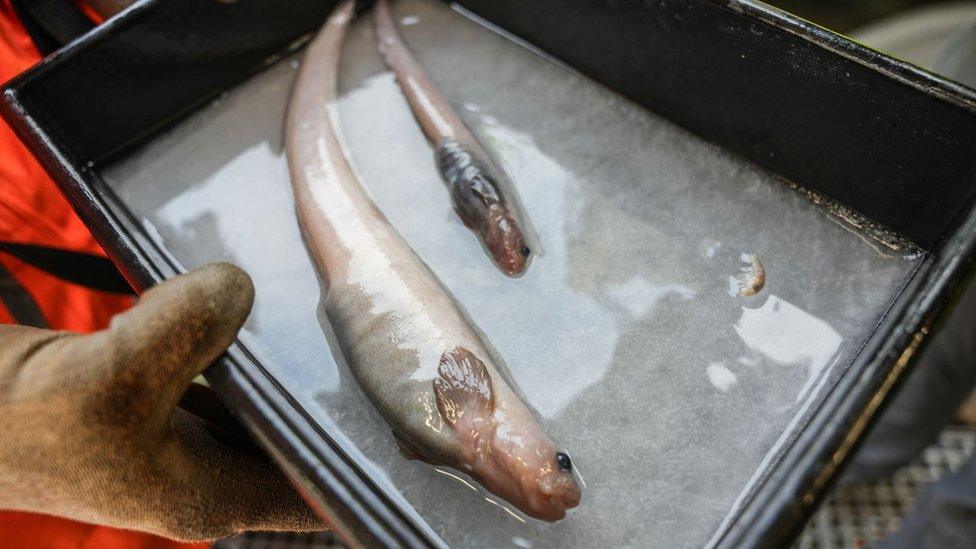
Scientists found three new species of fish during the expedition off the coast of New Zealand
The three-week voyage led by Ocean Census saw almost 1,800 samples taken along the 800km (497-mile) underwater site.
Dr Gordon, a specialist technician at the university's school of life sciences, said taxonomists joined the trip to help classify any species found.
They have been working alongside scientists to confirm the finds, but one has left the experts baffled.
'Very excited'
Dr Michela Mitchell, of Queensland Museum, said the team thought it might have been a sea star - a sea-anemone or zoanthid-like creature - but no proof had yet been found.
"We've got a lot of experts here having a look who are very excited," she said.
"We now think it could be a new species of octocoral, but also a new genus. Even more excitingly, it could be a whole new group outside of the octocoral.
"If it is, that is a significant find for the deep sea and gives us a much clearer picture of the planet's unique biodiversity."
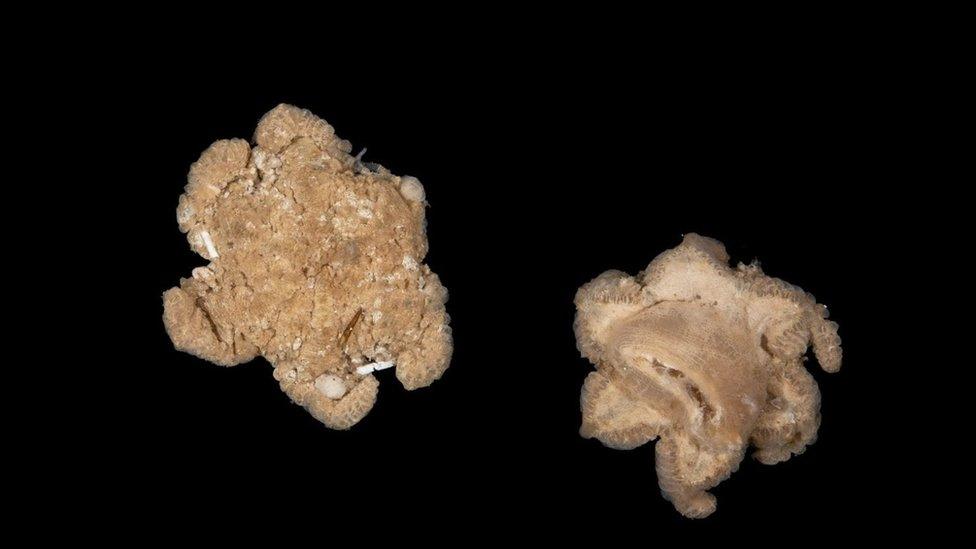
Taxonomy experts have been left baffled by this find, but believe it could be a sea star
Prof Alex Rogers, the science director of Ocean Census, said he was impressed with the sheer biodiversity of life that was discovered.
"It looks like we have a great haul of new, undiscovered species. By the time all our specimens are examined, we will be north of 100 new species," he said.
"But what's really surprised me here is the fact this extends to animals like fish; we think we've got three new species of fish."
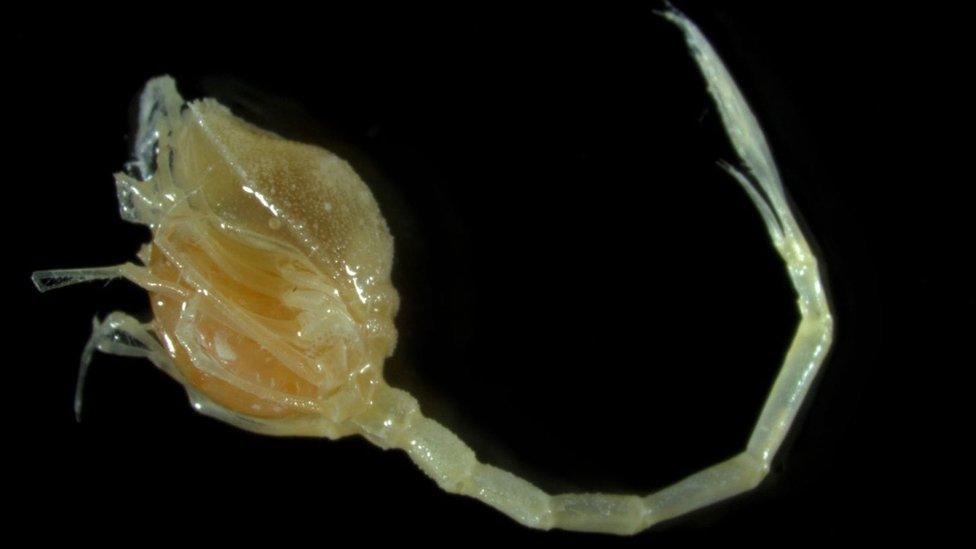
A potential new comma shrimp species was found during the three-week voyage

Follow East of England news on Facebook, external, Instagram, external and X, external. Got a story? Email eastofenglandnews@bbc.co.uk, external or WhatsApp 0800 169 1830
Related topics
- Published19 March 2024

- Published28 February 2024
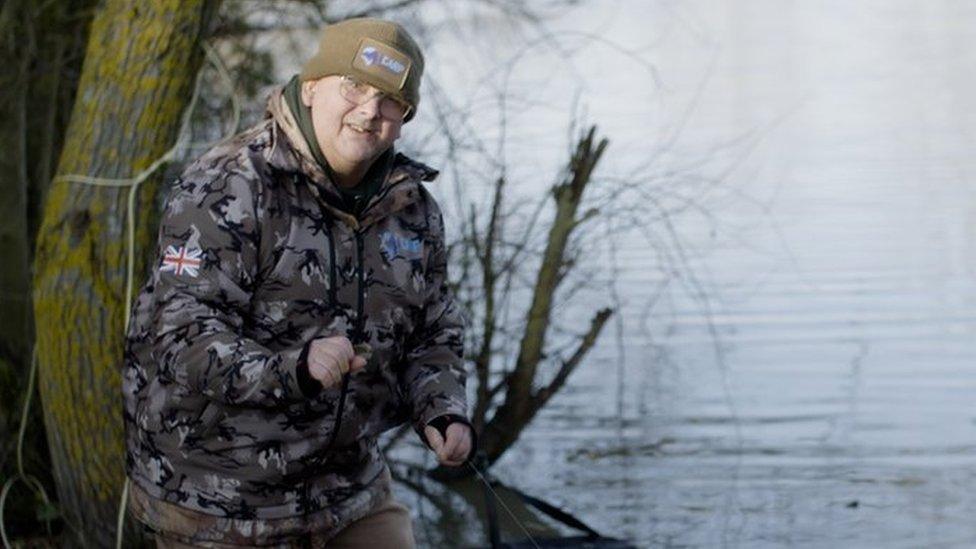
- Published12 February 2024

- Published21 November 2023
